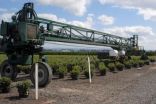(Press-News.org) Systems biology is a holistic approach to the study of how a living organism emerges from the interactions of the individual elements that make up its constituent cells. Embracing a broad range of disciplines, this field of science that is just beginning to come into public prominence holds promise for advances in a number of important areas, including safer, more effective pharmaceuticals, improved environmental remediation, and clean, green, sustainable energy. However, the most profound impact of systems biology, according to one of its foremost practitioners, is that it might one day provide an answer to the central question: What is life?
Adam Arkin, director of the Physical Biosciences Division of the U.S. Department of Energy (DOE)'s Lawrence Berkeley National Laboratory and a leading computational biologist, is the corresponding author of an essay in the journal Cell which describes in detail key technologies and insights that are advancing systems biology research. The paper is titled "Network News:Innovations in 21st Century Systems Biology." Co-authoring the article is David Schaffer, a chemical engineer with Berkeley Lab's Physical Biosciences Division. Both Arkin and Schaffer also hold appointments with the University of California (UC) Berkeley.
"System biology aims to understand how individual elements of the cell generate behaviors that allow survival in changeable environments, and collective cellular organization into structured communities," Arkin says. "Ultimately, these cellular networks assemble into larger population networks to form large-scale ecologies and thinking machines, such as humans."
In their essay, Arkin and Schaffer argue that the ideas behind systems biology originated more than a century ago and that the field should be viewed as "a mature synthesis of thought about the implications of biological structure and its dynamic organization." Research into the evolution, architecture, and function of cells and cellular networks in combination with ever expanding computational power has led to predictive genome-scale regulatory and metabolic models of organisms. Today systems biology is ready to "bridge the gap between correlative analysis and mechanistic insights" that can transform biology from a descriptive science to an engineering science.
Discoveries in systems biology, the authors say, can generally be divided between those that relied on a "mechanistic approach to causal relationships," and those that relied on "large-scale correlation analysis." The results of these discoveries can also be categorized according to whether they primarily pertained to the principles behind cellular network organization, or to predictions about the behavior of these networks.
"As systems biology matures, the number of studies linking correlation with causation and principles with prediction will continue to grow," Schaffer says. "Advances in measurement technologies that enable large-scale experiments across an array of parameters and conditions will increasingly meld these correlative and causal approaches, including correlative analyses leading to mechanistic hypothesis testing, as well as causal models empowered with sufficient data to make predictions."
As the complete genomes of more organisms are sequenced, and measurement and genetic manipulation technologies are improved, scientists will be able to compare systems across
a broader expanse of phylogenetic trees. This, Arkin and Schaffer say, will enhance our understanding of mechanistic features that are necessary for function and evolution.
"The increasing integration of experimental and computational technologies will thus corroborate, deepen, and diversify the theories that the earliest systems biologists used logic to infer," Arkin says. "This will thereby inch us ever closer to answering the What is Life question."
INFORMATION:
The systems biology research cited in this essay by Arkin and Schaffer was supported by DOE's Office of Science (Biological and Environmental Research), and by the National Institutes of Health.
Lawrence Berkeley National Laboratory is a U.S. Department of Energy (DOE) national laboratory managed by the University of California for the DOE Office of Science. Berkeley Lab provides solutions to the world's most urgent scientific challenges including sustainable energy, climate change, human health, and a better understanding of matter and force in the universe. It is a world leader in improving our lives through team science, advanced computing, and innovative technology. Visit our Website at www.lbl.gov
Berkeley Lab scientists take a look at systems biology and cellular networking
2011-03-18
ELSE PRESS RELEASES FROM THIS DATE:
Gardening linked to increased vegetable consumption in older adults
2011-03-18
COLLEGE STATION, TX—New research from Texas A&M University and Texas State University found that older adults who participate in gardening may be more likely to eat their veggies. The report, published in HortTechnology, presents the results of an online survey of adults aged 50+ and includes recommendations for promoting gardening "intervention" programs to older adults.
According to researchers Aime Sommerfeld, Amy McFarland, Tina Waliczek, and Jayne Zajicek, studies have shown that poor nutrition is one of several factors responsible for mortality and morbidity in ...
Corn gluten meal tested on squash survival, yields
2011-03-18
LANE, OK—Corn gluten meal, a powdery byproduct of the wet-milling process of corn, has shown important potential for use as an organic, non-selective preemergence or preplant-incorporated herbicide. A team of researchers from the U.S. Department of Agriculture-Agricultural Research Service and Oklahoma State University recently reported on the impact of corn gluten meal (CGM) applications on direct-seeded squash (Cucurbita pepo), and determined that CGM can be effective and safe if used in banded applications.
Used for years as a supplement in dog, fish, and livestock ...
Want more zest for life? Consider gardening!
2011-03-18
COLLEGE STATION, TX—Does gardening contribute to quality of life and increased wellness for older adults? Researchers from the Texas A&M and Texas State Universities asked these questions in a survey of people aged 50 and older. The survey revealed some compelling reasons for older adults to get themselves out in the garden.
Aime Sommerfeld, Jayne Zajicek, and Tina Waliczek designed a questionnaire to investigate older adult gardeners' and nongardeners' perceptions of personal life satisfaction and levels of physical activity. According to Sommerfeld, lead author of the ...
New research tool targets microRNA expression in zebrafish
2011-03-18
New Rochelle, NY, March 17, 2011—A new research tool for studying microRNA expression in zebrafish will help researchers study the effects of miRNA on the early development of this model organism and better understand developmental and disease mechanisms in humans, as described in Zebrafish, a peer-reviewed journal published by Mary Ann Liebert, Inc. The article is available free online ahead of print.
Researchers from University of Oregon (Eugene) have developed a novel, cost-effective method for measuring the expression of microRNAs (miRNA) in specific tissues in ...
Solar greenhouses: China's winning solution to global energy crisis
2011-03-18
BEIJING, CHINA—Solar greenhouses have played a vital role in China's agricultural scene for years. New innovations in greenhouse design are allowing growers to produce more varieties of vegetables, even during long winter months. In a recently published report Chinese scientists called solar greenhouses "the most important type of infrastructures for growing horticultural crops in China." The team of researchers from the College of Agronomy and Biotechnology at China Agricultural University presented an extensive report on single-slope solar greenhouses in a recent issue ...
Survival matching should be used to allocate donated kidneys to transplant recipients
2011-03-18
Ann Arbor, Mich. — Providing kidney transplants to patients with the best probability of longer survival would reduce repeat transplant operations and improve life span after kidney transplant, says a U-M researcher in a commentary published in the New England Journal of Medicine March 16.
Alan B. Leichtman, M.D., professor of Internal Medicine at U-M and his co-authors endorsed new concepts designed to improve kidney allocation. These concepts were circulated in February by the Organ Procurement and Transplantation Network (OPTN). The OPTN is the federal contract that ...
Are the wealthiest countries the smartest countries?
2011-03-18
It's not just how free the market is. Some economists are looking at another factor that determines how much a country's economy flourishes: how smart its people are. For a study published in an upcoming issue of Psychological Science, researchers analyzed test scores from 90 countries and found that the intelligence of the people, particularly the smartest 5 percent, made a big contribution to the strength of their economies.
In the last 50 years or so, economists have started taking an interest in the value of human capital. That means all of the qualities of the people ...
Integrating instructional multimedia in nursery management, production courses
2011-03-18
AUBURN, AL—Students at land-grant universities are a major source of educated, highly qualified employees for the U.S. nursery industry. To prepare future employees for work in "green" occupations, land-grant institutions have traditionally offered classes in nursery management and production, but availability of qualified faculty, integration of departments, and cutbacks in horticulture programs have contributed to a reduction in the number of nursery management and production (NMP) courses being offered.
In a recent issue of HortTechnology, Amy N. Wright, James A. Robbins, ...
Epic Multimedia Making an Impact One Marketing Campaign at a Time
2011-03-18
Epic Multimedia is an award-winning advertising agency in Sioux Falls, South Dakota. Their philosophy on marketing is simple, they want to start conversations between their clients and their client's customers - a simple but effective philosophy.
Epic Multimedia has worked with the South Dakota Department of Health on their Influenza marketing campaign for the past few years. During the 2009-2010 year Epic Multimedia created public service announcements for both the Influenza and H1N1 vaccinations for the state of South Dakota.
The creative was targeted toward creating ...
Highlights, including authors and their institutions
2011-03-18
The following highlights summarize research papers that have been recently published in Geophysical Research Letters (GRL), Journal of Geophysical Research-Atmospheres (JGR-D), Journal of Geophysical Research-Oceans (JGR-C) and Paleoceanography.
1. Huge ocean "Frisbees™" spin off Brazil's coast
As the North Brazil Current (NBC) moves northward along the northeastern coast of Brazil, it draws water from the South Equatorial Current and the freshwater outflow of freshwater from the Amazon River, providing warm, nutrient-rich water to areas north of the equator. Just ...


